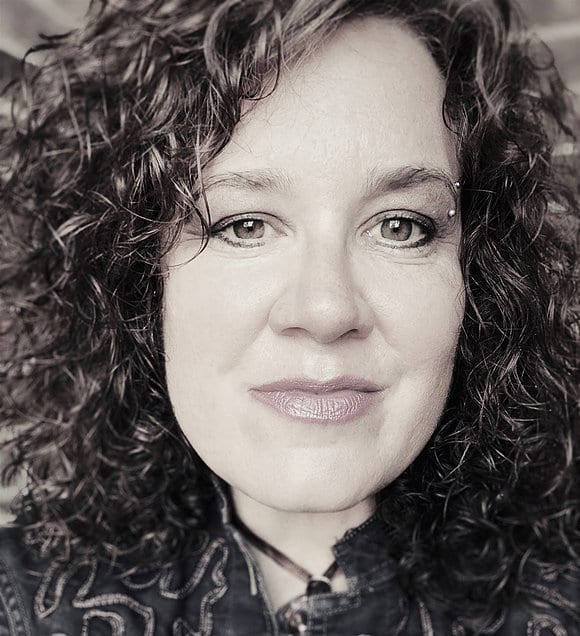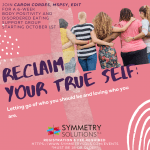I have been working with mixed-faith marriages as an expertise in my practice for over a decade. With so many people in today’s climate having shifts in their religious identities… it often affects spouses and marriage. Where they once shared their religious beliefs and faith traditions, they no longer do.
There are few resources to know how to manage this in marriage-positive ways. I am so proud to have come up with a curriculum in partnership with Allan and Kattie Mount (hosts of the Marriage on a Tightrope podcast) where we now offer a 6-week online course to help couples negotiate these painful spaces. We just finished Week 1 where the couples were expected to do an in-home exercise that required active listening (no rebuttals) to the experience of the other during the faith transition process.
The following is a list of the types of comments that people shared. I know it’s long… and yet I also know that for those experiencing what can feel like a very lonely and confusing time, it can feel so supportive and hopeful to read other people’s experiences. So here goes…
1. The root of what we are both most afraid of is to be left behind.
It can be scary to feel judged or not feel accepted as we move forward together.2. This isn’t easy for either one of us. Both of us are afraid of keeping the connection we want to have. It’s not that we are tired of each other… we want to stay connected.
3. It’s hard to wonder what external people are thinking about our marriage. There is a sense of shame. I’m the one that changed the game and doing something differently and it’s hard to hurt people in that process.
4. It’s not a purposeful thing on either part… to stay connected to the church or to stop believing. And yet for better or for worse it’s where we find ourselves.
5. How do we connect when it feels like our core beliefs as a couple are gone? But then you realize it’s not that they are gone… you have to rethink them.
6. For me the biggest fear was that my spouse would love the church more than our marriage. And it’s been so helpful to have discussions where we confirm to each other that our family comes first no matter what.
7. It’s nice to realize we still have a lot in common.
8. It’s hard when I want to support my spouse… but in a faith transition that I’m not going through… sometimes I’m not the person best suited to help my spouse.
9. We’re both afraid/worried about our kids.
10. It really hit us when we had to think about “are we married because of the church… or are we married because we love each other?” That’s really helped us prioritize what’s important.
11. I haven’t felt like I could talk much about how I’ve been feeling… and these exercises have really helped us open up.
12. It’s hard to know how this process is going to influence our kids…
13. Our biggest fear is are we going to lose our connection as we go through this? Will you love me less? It was so interesting that we both felt the same way. And I can focus on the fact that we love each other today.
14. Being left alone as the only person remaining in the church and being seen as the crazy religious person was a big fear for me.
15. We wish we had this list of questions at the beginning. And checking back to them as time went on. Would have made the journey easier and less painful.
16. Because the differences between us were so painful… we stopped communicating. And now we feel alone and it’s hard to reconnect. So it’s a challenge to lean into this class and the exercises.
17. I have been so angry and hurt… and I’ve had to work really hard. And then I got to face the first question… “why did I fall in love with you?” And that made me think about our many strengths and what I love about my spouse. I can’t force my spouse to believe or to make certain choices. But I can take a positive approach to our marriage. We talked about a lot of things we haven’t talked about before.
18. When I stopped perseverating about my own pain… and began to focus on the pain and loss my wife was experiencing, that was a huge step for me. Leaving the egocentric view was a game changer… and really caring about the other person.
19. This process creates a lot of opportunity for vulnerability on both sides… and we realize how lonely we both are.
20. It’s hard to self-disclose doubt, but it can lead to greater emotional intimacy.
21. I wonder if people, like I do sometimes, withdraw into a cave without using “I feel” statements to process our emotions.
22. It was hard to answer the questions because we had to get vulnerable… but it was also a relief to get real with one another.
23. The emotional rawness brings a new type of intimacy which is quite profound. So it’s interesting that it’s not all bad.
24. The biggest insecurity I have is that I’m not the man she married and that I may not measure up in her eyes anymore. And maybe she has some of those insecurities too.
25. I realize I have to offer respect, because I desperately want respect from him in regards to my staying close to my religious beliefs.
26. At the end of the discussion we had, I felt charity towards my spouse… its that true caring for the other and wanting them to be happy.
27. We realized through this exercise that we have a lot more in common than what we have not in common.
28. We have a long history of togetherness… so it was good to remember that this faith transition doesn’t define us and we still love each other.
29. Radical compassion is at the core of what it means to be human. We all need that.
30. We both expressed feeling unsupported by the other in this process… When we are wrapped up in our own pain it can be hard to be there for the other person.
31. My wife is worried that I think she is dumb or naive because she still believes in the church… and it’s really sad for me because that’s not how I feel.
32. When my spouse says they fell in love with my spirituality… that makes it hard when I’m the one transitioning. So now we are having to look at what “spirituality” means and how it can still be one of our strengths.
33. I’m learning to broaden the term spirituality… and now I realize that it’s more his sensitivity I fell in love with.
34. One of the best/worst things about all of this is realizing how many people are wrapped up in the same pain we are.
35. I didn’t know that telling your spouse about losing your faith could be another form of trauma. It’s been difficult and painful. And yet putting in the work… typically good things happen and we are seeing the fruits of that. We’ve been married 27 years and we’re the best we’ve ever been.
36. It comes down to love. This experience has really taught me what love is all about.
37. Caring for others is my new spirituality.
38. We had serious communication issues in our marriage before this faith transition… so in a sense there was stuff we had to work on anyway.
39. I put the kids up front, and put my spouse in the back seat because he wasn’t going where I felt we needed to go. Now I realize we need to reengage and get back to driving together.
40. I can appreciate my wife’s confidence in the gospel even though I can no longer be in that same place. I’m so glad I can see that from a positive light and as a supportive husband… versus the negative place I was before.
41. I think we are scared for each other as far as how our parents are going to react to this new development. I know we don’t need to necessarily care about that but it’s still hard.
42. This process has brought out even better communication. Before we took for granted that we thought the same things. Now we really have to discuss and go deeper as to what we believe.
43. Since we’ve been at this for a while, it’s nice to see how time helps with our fears and our pain.
44. There’s some real difficulty in being able to talk about some of these things. It makes us have to face the communication challenges we have as a couple. This exercise led to more questions marks which is good but hard.
45. I realize that this is a lonely process when I feel like I can’t process things with my spouse because I don’t want to hurt their faith or offend them somehow. I can understand where they are because I was there… but they can’t understand where I am and that’s lonely.
46. It’s been helpful hearing so many experiences that are like ours.

 Natasha Helfer, LCMFT, CST, CSTS can be reached at
Natasha Helfer, LCMFT, CST, CSTS can be reached at 










